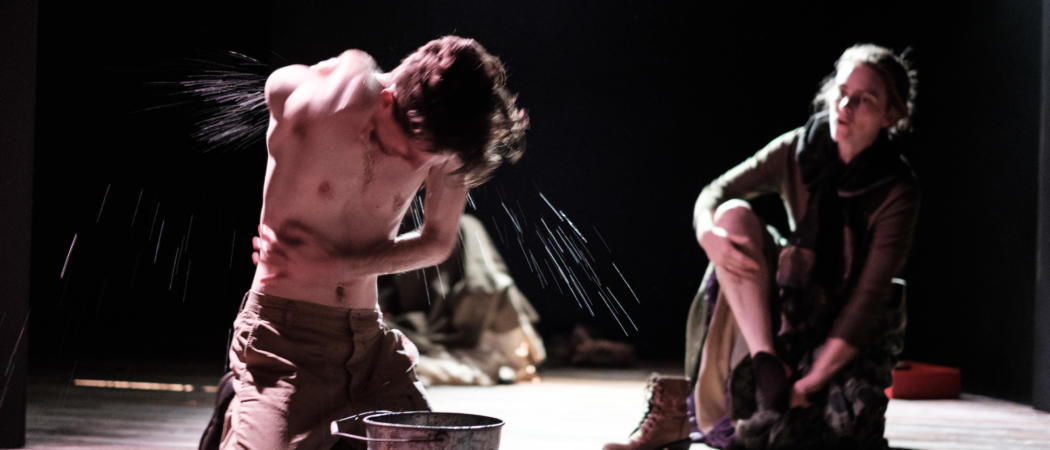Having a passionate preference for this work as a novel, and having devoured the tomb a number of times, I must admit that I attended the theatre opening night, as a guest not the reviewer, and with trepidation. You'd understand. You'd be familiar. We've seen it before when great works hit the stage or screen, torn to shreds, squeezed of life, like an abridge Readers Digest or comic strip version. But I was wrong.
Central to the success of this play is the 2013 adaption by Chris Hannan which retains not only the majority of the original plot, but embalms the interwoven themes of Fyodor Dostoyevsky's Crime & Punishment and migrates them threads unbroken. Intellectual reason vs religion. The psychology of guilt and nature of suffering. The questioning of common morality vs the freedom of the individual. Poverty. Possessions. Work. Status. Spiritual death to redemption. With other demonstrations from the beginning of mid 19th century intellectualisation, and more. It's a big work with, as actor and co-producer James Smithers later reminded me, big ideas.
Yet without this production, direction, cast and crew the essence and intent of the original work would not have been translated so skillfully to the Limelight stage.
At its core, James Smithers provides an exemplary portrayal of the tormented Raskolvikov, which delivers the long and agonizing equivalent of chapters of narrative of the crime inception. The ability of the actor to take us inside, to be in his head, to the act of murder, and the downward spiral of twisted anguish through guilt is phenomenal. The colour drained from his face. His eyes reddened at times swelled in tears. He lay sick and sullenly on the bare attic mattress. Yet there was a force beyond the role, the transportation to an era of different beliefs and evolving values. We stood in his Russian shoes.
Secret House co-producer with Smithers, Jane Angharad lent an outstanding period presence that swung between gentle naivety and staunch determination and principles, to foil the questions of prostitution by marriage or by money with a superlative Natasha Vickery as Sonya.
Of note in the remaining female cast of consciousness strong performances by Hannah Barlow, Madeleine Miller and Beth McMullen. From the lads, Charles Upton convinced us in three roles, Tim Kemp tricked us with his churlish ways, and the quality team was completed by Philippe Klaus and Shan-Ree Tan.
As director Anthony Skusee notes "To work on a play is to fall in love with it and in this instance I fell even more deeply in love with Dostoyevsky. The novel, very quickly, became our guide through the piece. Crime & Punishment is one of the first psychological novels, and depicts the social and psychological dislocation brought about by rapid economic change. Dostoyevsky's poor are drawn from the downwardly-mobile middle class whose deprivation is compounded by loss of status."
Earlier tonight, I've been reading a little about the life of Dostoyevsky, a son of doctors, his childhood poverty and illness, his academic studies and his move from engineering to writing, and his arrest...
Alongside this additional knowledge, I've also got a bit more life experience and understanding than since I first read the book, a bit more depth of understanding of the period through study, and now I have additional awareness through the play and its interpretation under my belt too. Sydney summer holidays and I feel it's time to embrace the novel again. And, if I'm really lucky I'll also get another chance to see the play before it closes its 2018 season at the end of the week.
With or without having read the novel, this Secret House production of Crime & Punishment is highly recommended.Photo credit Clare Hawley
